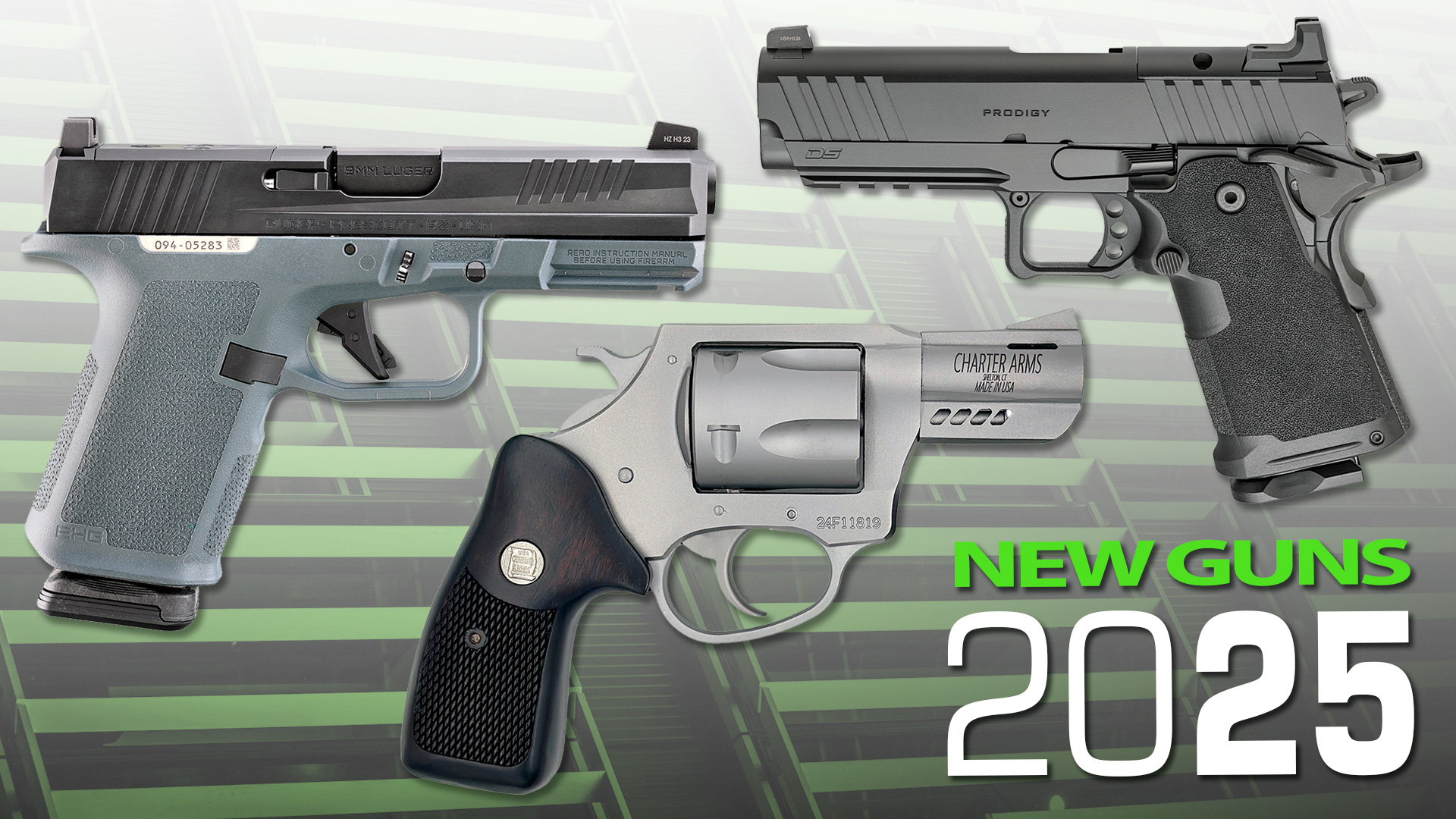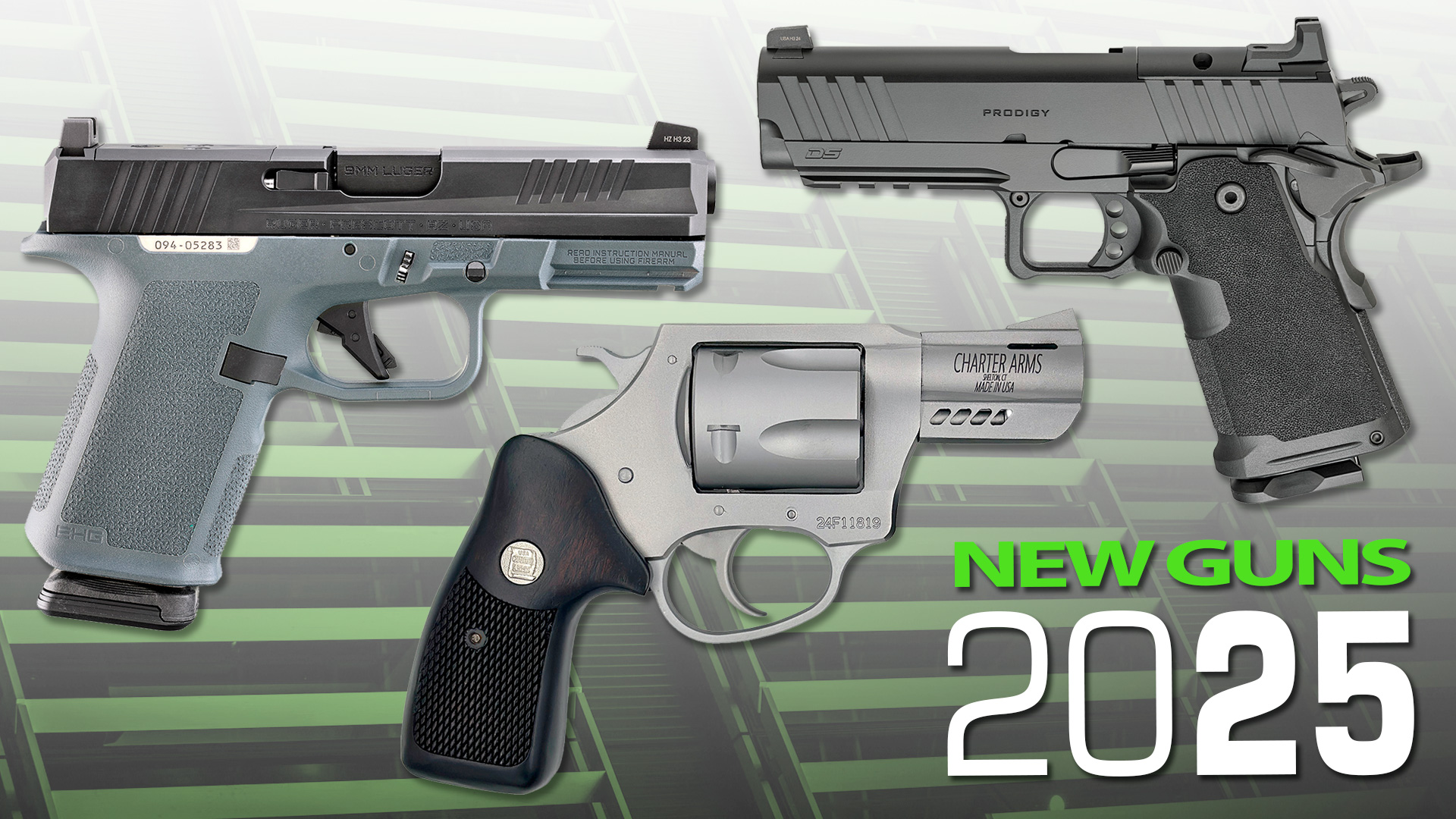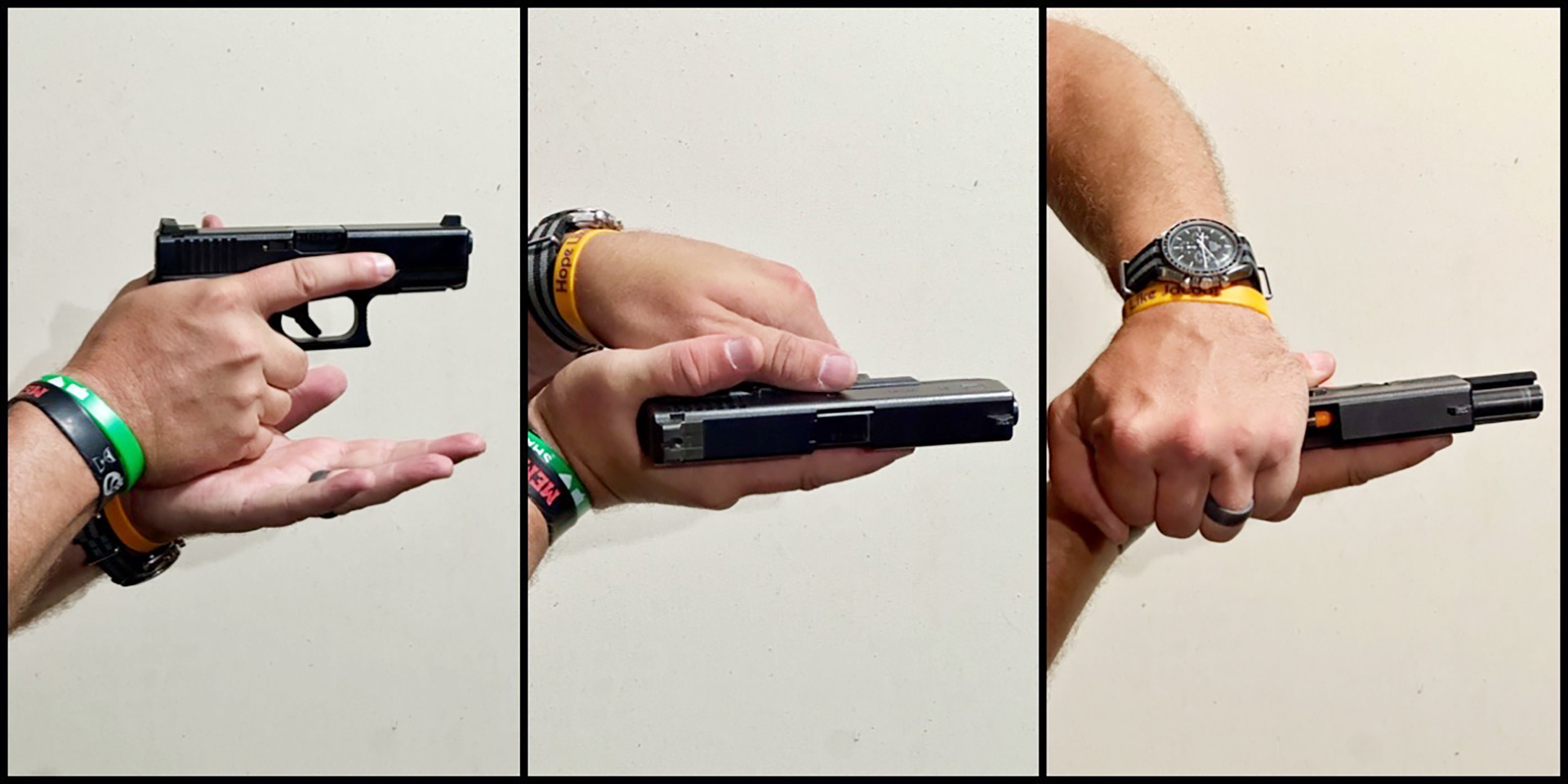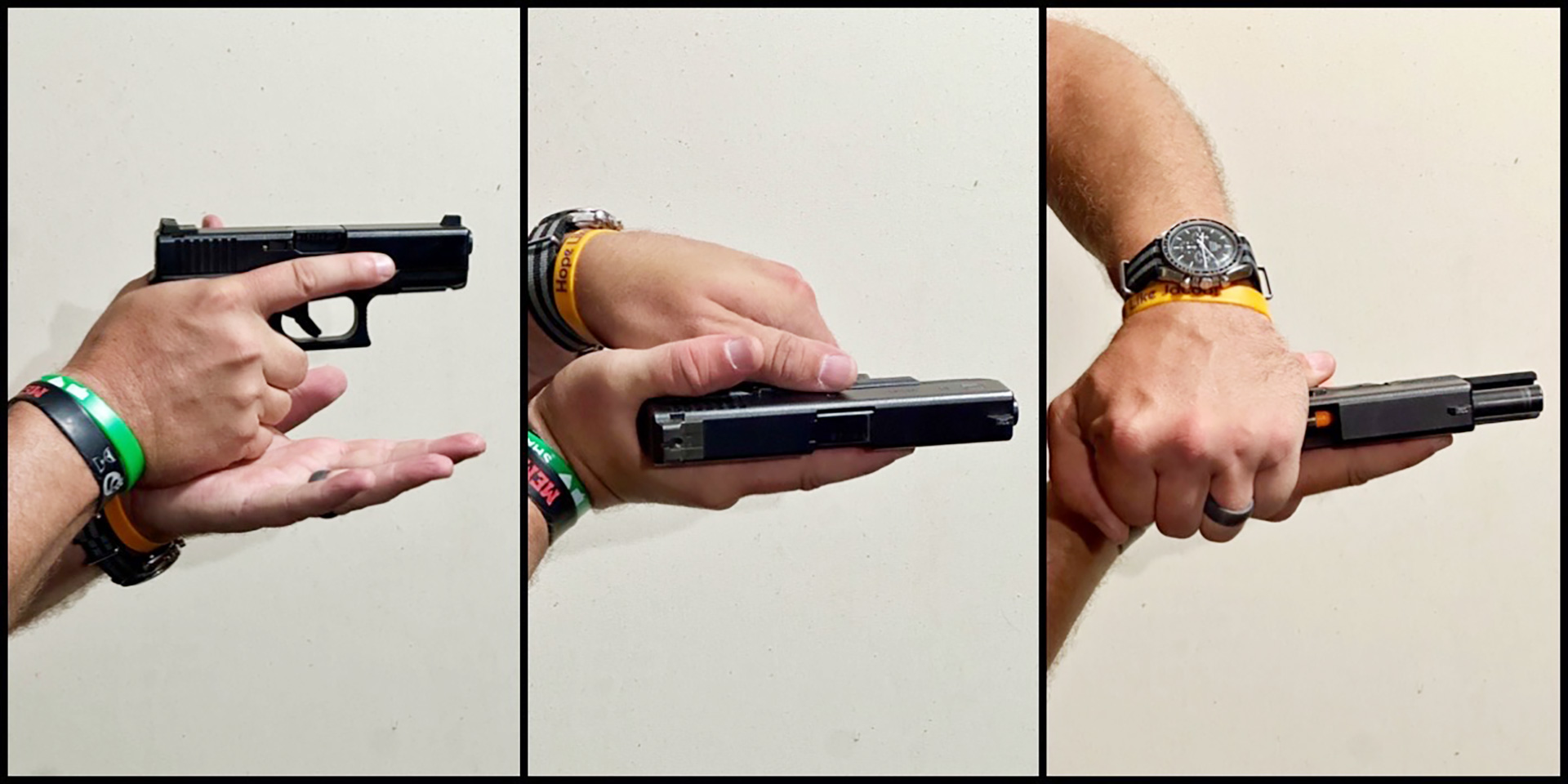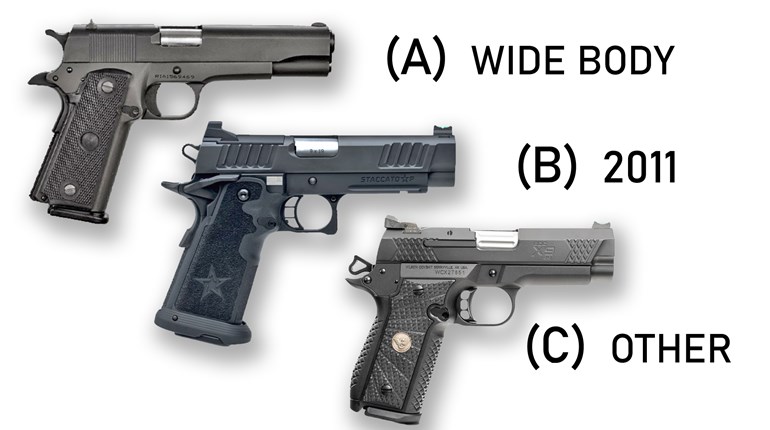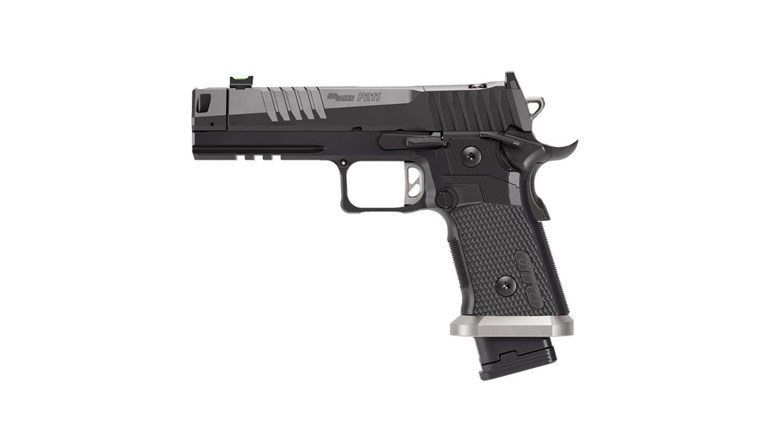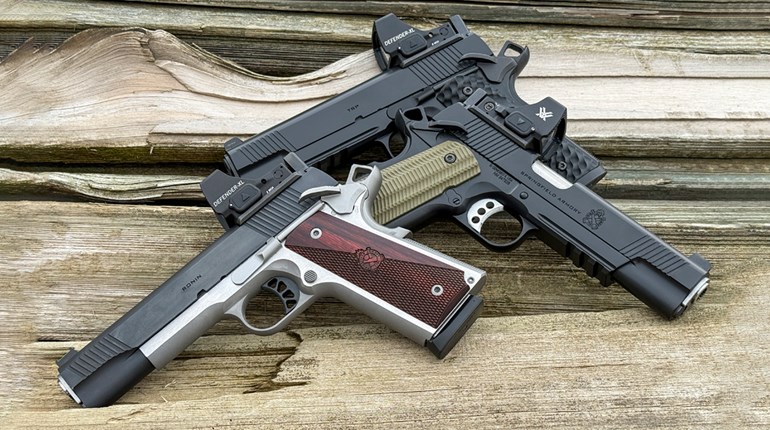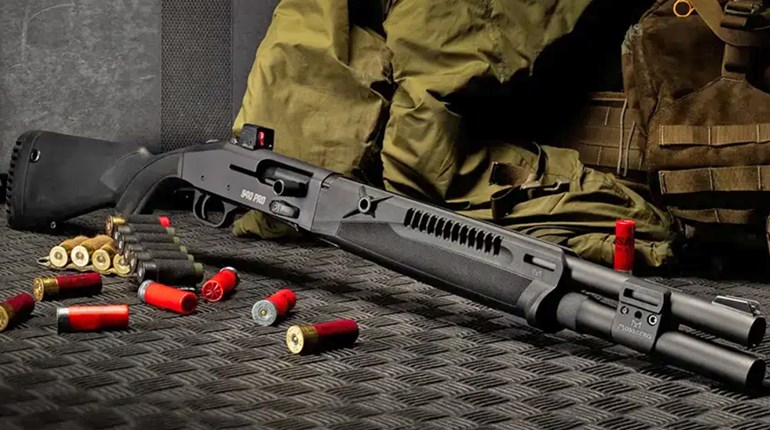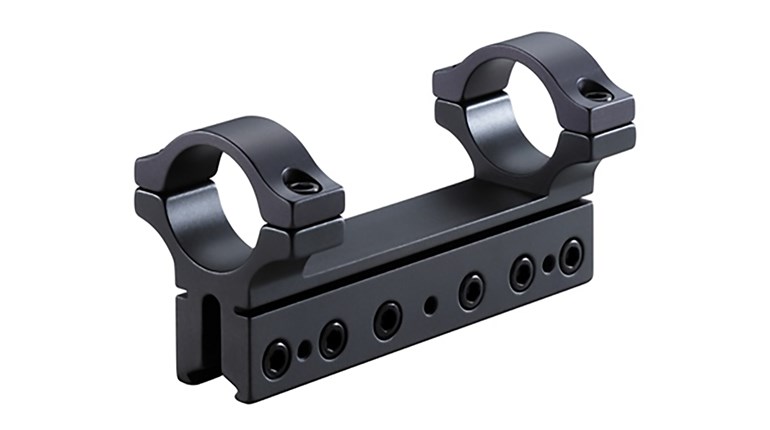
Whether we commit it to paper or not, most gun enthusiasts maintain a running list of guns we’d like to own. Some may be military arms, hunting rifles, raceguns, historical pieces, target pistols, prepper guns or examples of museum-quality artistry. I’ve always had an appreciation for—and an impulse to purchase—carry guns. As soon as I check one off my list, I’m shopping around for another. Some of this is due to acquisitiveness; some to self doubt. Is this really the best gun to carry in such-and-such situation? Well, what if this happens—or that?
A handgun that was on my list for a very long time was the Colt Mustang Pocketlite. (OK, it’s still on there, but has moved down a rung or two.) The reason was, as Tamara Keel reminded us last month, there was a time when any self-respecting pistol aficionado had to have a 1911-based pistol and was obligated to issue a disdainful “harrumph” any time someone mentioned that faddish plastic pistol from Austria.
The rule about backup pistols has always been that they should essentially operate similarly to your primary carry gun, so you’re not trying to recall a different manual-of-arms in the midst of a gunfight (when you are very likely to go stupid). If your primary was a bobbed-hammer Smith & Wesson Model 13, then a Smith & Wesson Model 38 Airweight Bodyguard was the ideal second gun, it too being a double-action revolver. Carry a Glock G19? The Kel-Tec P3AT (or now the Ruger LCP) was the “double-action-only” gun with which to back it up. (Yes, we can argue terminology all day, Capt. Nitpick. “Striker-fired” “Safe-action.” “Double-action-only.” Hell, Ruger calls the new LCP II a “single-action.” For our purposes, we broadly mean groups of handguns that require similar manipulations to operate.)
Getting back to the 1911, if some form (say a Lightweight Commander) were your primary carry gun, you had few options in a similarly functioning pocket pistol. For many, the preferred option was the Mustang Pocketlite, an aluminum-frame, 12.5-ounce single-action. It was and is light, incorporated a thumb safety and had a single-action trigger. Inside a holster and with a little training for the owner, it was safe to carry in a pocket, however, it was “only” a .380 ACP.
It pretty much had the single-action pocket pistol market to itself until SIG Sauer debuted its P238. More recently, Kimber—which two decades ago revolutionized the 1911 market—introduced the Micro 380. Was the new gun unique or just a stylishly reinvented wheel?

Pow!
Who knows? Before anybody had time to decide, Kimber introduced the Micro 9. If the Micro 380 was a jab to the market, the Micro 9 was the overhand right.
Kimber’s timing with the 9 mm couldn’t have been better, as the caliber had just been newly embraced by the tactical firearms world. Advances in ballistics and cartridge manufacturing had tweaked premium 9 mm ammunition into the same performance area as .40 S&W and .45 ACP (in terms of expansion and penetration). It is accurate and manageable, while still fitting into moderate-size frames. The FBI’s adoption of the cartridge rippled through the tactical market. Ammunition created to meet the FBI’s testing protocol carried over to state and local law enforcement and the civilian market and, suddenly, 9 mm was once again the chambering to have.
While the Micro is chambered in both .380 ACP and 9 mm, for most armed citizens, the perception of the two chamberings is vastly different, despite recent improvements to the smaller cartridge. When facing a potentially dangerous situation, only the most hardcore .45 ACP fan would lament having “only” a 9 mm.
Doing Real Gun Stuff
My first experience with the Micro 9 was while attending a Kimber-sponsored event at the famed Gunsite Academy in Paulden, AZ. It resembled a miniaturized 1911 in some ways, but not in others. There was a beavertail, but no grip safety. There was a slim, single-stack grip, but no barrel bushing.
As the event progressed, I had the opportunity to shoot some drills with it. That’s where the little pistol really began to impress. You see, it wasn’t just used as a pocket pistol doing speed rocks at 3 yards. No, the Micro performed the tasks of a bona fide 9 mm. With it, I dropped steel plates along a Hogan’s Alley dirt road and cleared a shoot house twice.
Pocket Rocket
While I consider the Micro 9 a pocket pistol, I do so with a caveat. It will work for many as a pocket pistol, but not for others. Much depends on your build, body size, the weather and the cut and fabric of your clothing. I can carry the Micro 9 in the pocket of denim jeans all day, but I can’t in light-weight cotton chinos. The same holds true for my Kahr PM9 9 mm and (often) my old Smith & Wesson Model 38 revolver.
The size of the pistol is a compromise, of course. You want it as small as practical for concealment, yet large enough not to fumble for, to offer good purchase for control during firing and to withstand the detonation of the 9 mm cartridge. I have big hands, but the grip frame of the Micro provided a satisfactory fit, relatively speaking. A Browning Hi Power fits my hand much better, of course, but try stashing one in the pocket of your jeans.
In short, I can hold the Micro 9 in one hand, operate the controls, fire it comfortably and make it safe. My biggest concern (although in practice it wasn’t really justified), was fumbling for the little gun on the draw. In a belt holster it feels small; when drawing under pressure it seems tiny. Nonetheless, I never actually fumbled any draws. With the flush-fitting, six-round magazine in place, there is no rest for the pinky and you simply curl it beneath the magazine floor plate. (An extended magazine with a finger rest is available separately.) A one-hand hold is no problem, but bringing the support hand up in a hurry demands you pay attention to where your support-hand thumb goes so as not to let it ride the slide and cause an operator-induced malfunction.

Raptor Features
Kimber’s Custom Shop Raptor version of the Micro 9 has a stainless steel slide with a single row of scallops down its length, breaking up glare more stylishly than the grooves typically seen on other pistols. The scalloping is repeated on the backstrap. It works and looks good, too. Pride of ownership is a concept not lost on the Custom Shop. Also attention-getting are the scale (plumage?) patterns on the Raptor’s slide and the Zebrawood grip panels. They are handsome and, more importantly, functional. Purchase was excellent, especially given the gun’s diminutive dimensions. This bird-of-prey’s frame-mounted thumb safety is ambidextrous and large enough for easy activation, but just barely. The pivoting trigger is a small, solid slab of aluminum without lightening holes. The Custom Shop even bevels the mag well to ease reloading. The real blessing on all Micros, though, is the presence of the beavertail. It goes a long ways toward directing your hand to proper placement, both on a belt or when drawing from a pocket holster.

The Micro 9 not only resembles a smaller, simplified 1911, it essentially functions as one, too, albeit without the link or bushing. Its barrel ramp, though, is a nice addition to the original design.
Disassembly is remarkably simple. Remove the magazine, rack the slide a few times and check the chamber to make sure the pistol is unloaded, then align the rounded top of the slide stop with the cutout in the slide, push out the slide stop from the back side, then ease the slide off the front of the frame. You can then compress the recoil spring and remove it and the guide rod, and then slip out the barrel.
The sights on the Micro 9 Raptor merit praise. They are not “make-do” units. They are steel, three-dot, night sights dovetailed into the slide. They are acquired quickly and the resulting sight picture is sharp and precise.

While in Arizona, we noted that Micro 9s were highly reliable. They kept chugging when a few other pistols didn’t. The brand-new test pistol we received at the office, however, initially failed to go into battery fairly often as it came from the box. A couple of drops of oil on the rails and a box of ammo to break in the gun largely (but not completely) eliminated the problem.
Also in Arizona, we learned that once you accepted it as something more than a last-ditch gun, the Micro 9 was pretty capable. Sure, it’s small, but the inclusion of a single-action trigger, decent sights and a potent chambering meant it could do more than one expects from a pocket pistol. In shooting, the beavertail again proves its worth. The 9 mm isn’t really a big kicker, but in a gun this small and light it is a bit “snappy.” However, the Micro 9 just smartly rolls up on that beavertail, then levers back down, leaving the web of the shooter’s hand unscathed—something that doesn’t always happen with tiny pistols.
Accuracy was good, and could have been even better. The trigger, while single-action, was not a particularly good single-action, being just a little stiff and gritty. Also, the pistol had a slight tendency to throw one flier now and again, opening up some otherwise excellent groups. Extended range sessions proved a little harsh on the first joint of the trigger finger, but this is a gun made to be carried constantly and fired occasionally. A well-placed adhesive bandage ended up providing all the padding necessary.
Bird of Praise
The Micro 9 is an interesting gun that should not be relegated merely to the status of a backup piece. The best carry gun is a reliable pistol of adequate power that you can shoot well and have with you the majority of the time. Our test gun is approaching that level of reliability; we’ve certainly seen it in other Micro 9s. The power (or effectiveness) of the 9 mm has now been endorsed by America’s premier law enforcement agency. A single-action pistol with good sights and 1911ish ergonomics is usually pretty easy for most folks to shoot well. And an aluminum-frame, 15.6-ounce pistol the size of most .380 ACPs is pretty darned concealable with a well-considered wardrobe and a couple of well-chosen holsters. In short, the Micro 9—and the Raptor in particular—may fit the bill as a carry gun as well or better than the medium-to-large pistol you leave at home half the time.




